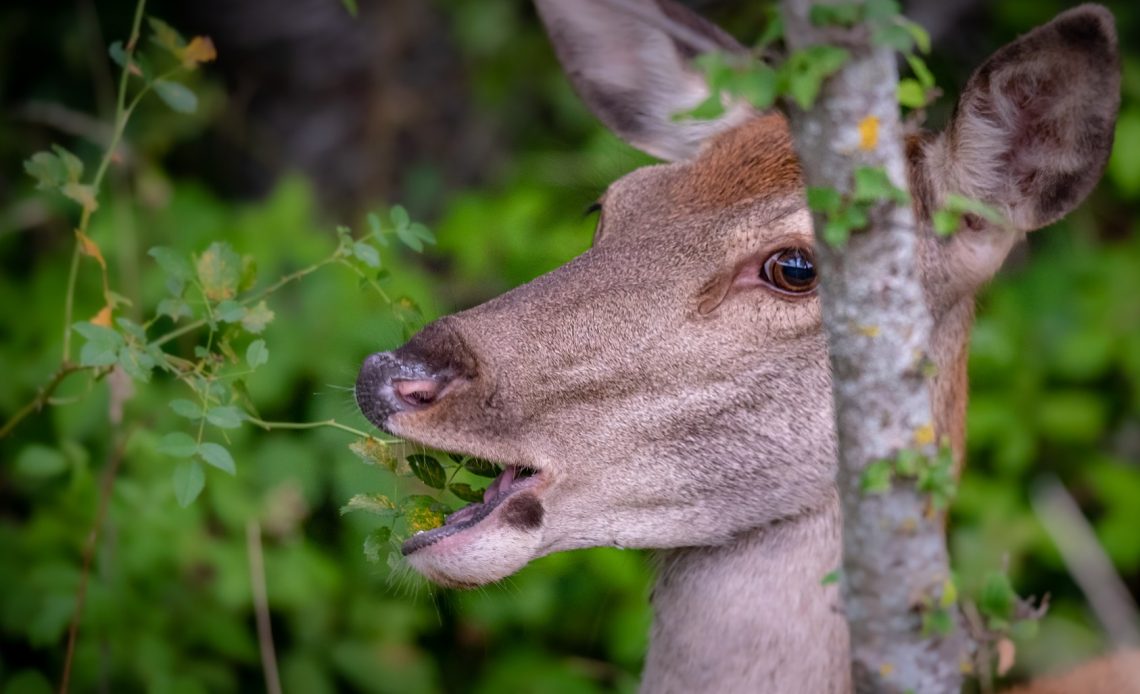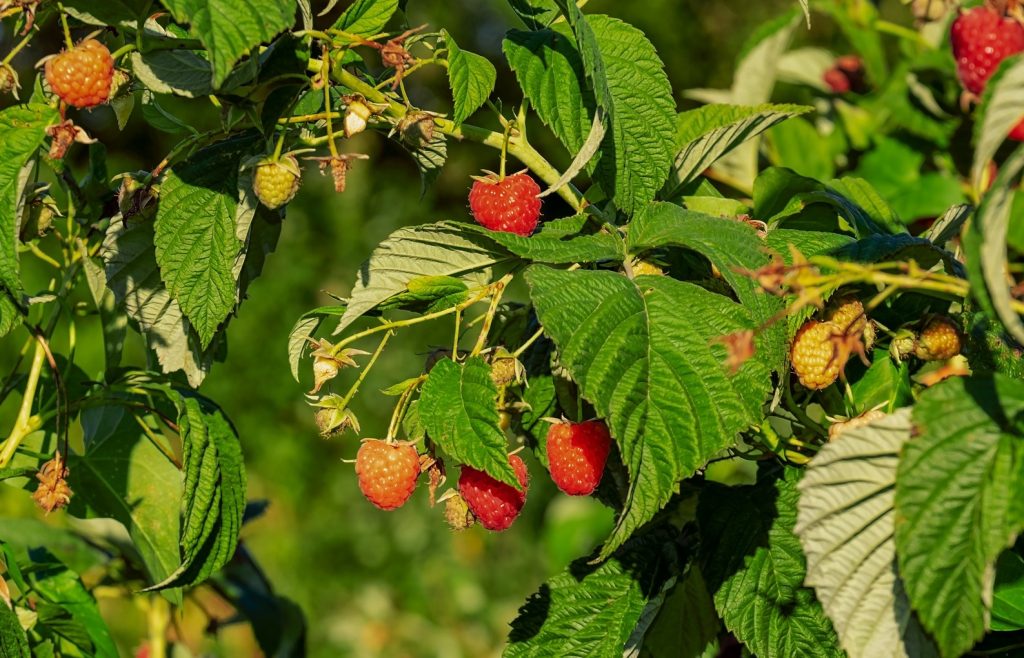

We’re here to help! Wild Yards is a completely free website that is 100% dedicated to helping you create a wildlife-friendly, sustainable yard. Read more
WildYards is reader-supported. When you buy a product through a link on our site, we may earn a comission. Every product is independently selected by our (obsessive) editors and our reviews are unbiased and objective. Read more about our mission or our privacy policy.
Deer are known for being berry-loving animals – as these fruits are generally easy to come across in the wild, falling from bushes, trees, and more besides. However, deer have also been known to steal from a crop or two, often from those of us who work extremely hard to keep our berry plants alive. The raspberry bush is one of the toughest fruit-bearing plants to maintain – with that in mind, do deer eat raspberries?
Deer generally love to eat raspberries. They are sweet, full of nutrients, and when they are easy to get to, they are a perfect, soft treat for your local animals to enjoy. However, deer often destroy the plants entirely when eating them, leaving you with a few brambles and leaves. Therefore, even if you want to attract deer to your yard, it may be worth protecting your berry plots.
Why do deer eat raspberries?
Deer are famous for having quite sweet teeth. Deer eat oranges, watermelon, strawberries, and even bananas if given the opportunity. Given that raspberries are generally easy to come by in local vegetation, they are a fruit that deer have evolved to enjoy as a readily-available snack.
What’s more, raspberries are very soft to chew and easy to digest. While deer may be picky about walnuts and other hard-shelled treats, raspberries are infinitely easier to manage on their teeth and sensitive stomachs. Raspberries, for example, are some of your local deer’s favorite summer treats when foraging is in full flow.
As raspberry bushes can get thorny, some deer may stay away from eating this fruit if there are ‘safer’ options available. For example, they are more likely to eat fallen fruit or weeds growing in the undergrowth if they appear tasty enough.
Deer will generally eat raspberries if they fall to the floor, as there is little risk of them getting hurt on brambles or thorns. If you grow raspberries and want to harvest them for yourself, it makes sense to have some form of deer-resistant provisions in place.
Some may feel that raspberry bushes are deer deterrents or are deer resistant. This isn’t the case, nor is it that raspberries will actually attract deer. If deer are hungry enough, they will chow down on anything bland, sweet, or easy on their teeth.
Deer are ruminant creatures, which means their digestive processes can be quite particular. That’s why it’s worth keeping their stomachs in mind if you are either attracting or deterring them from your yard.

How do I keep deer from eating my raspberries?
If you wish to deter deer completely from your yard, bright lights and loud noises are most likely to scare them away – installing infrared lights and specialist deer speakers can work a treat. However, if you wish to welcome other animals into your yard – just not deer – you may wish to avoid installing anything likely to scare other creatures away.
Therefore, it may be a good idea to build walls around any plants or fruit you don’t want deer to eat. Deer will peer over fences and will stride over to get fruit if they are hungry enough, meaning you’ll need to keep raspberry bushes enclosed for full protection.
That said, deer are more likely to find fallen nuts and fruit attractive over full raspberry bushes, so clear up any fallen berries as a priority if you really wish to keep deer away.
It’s also a good idea to use scents that deer dislike – you can purchase urine-based sprays that give the sense that predators are active in the area. However, anecdotal evidence suggests these may be hit and miss.
Luckily, there are other plants deer love – and trees that deer adore – which you can use to help distract from raspberry plants. Try setting up a feeding plot close to the edge of your yard, under tree cover. Then, you may wish to cover your garden in deer-resistant plants and vegetables (such as cucumber, which deer tend to avoid) to prevent them from being tempted by anything too tasty further into your outdoor plots.
What animals eat raspberry bushes?
As bad as deer can be for raspberry plants, it is important to note that they are most likely not the only ones eating your plants! There are plenty of animals who love eating raspberry plants, many of which are likely already in your garden. Some of these animals include squirrels, rabbits, birds, raccoons, skunks, and other rodents.
That is why it is essential to know how to protect your raspberry plants effectively and humanely. Some of the best protection for raspberry plants include netting, walls or fencing, and natural repellents (such as scents from citrus fruits, essential oils, etc.).
It’s tempting to blame a lack of raspberries in your garden on your local deer, however, if you welcome lots of other animals to your yard, consider their tastes, too. If all else fails, try to grow raspberry bushes in raised planters, or restrict animal access from specific areas of your garden.
